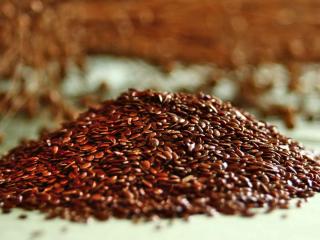

Flax is a plant species of the Linaceae plant family. Native to Eurasia, this plant is grown for either its textile-worthy fiber or its oil-bearing seeds.
Flax is a plant that recently has been discovered to provide exceptional benefits to the environment.
Flaxseed, or linseed, are known to be the absolute richest plant-derived source of alpha-linolenic acid (ALA), a type of omega-3 that contributes to better body protection against many diseases. Which ones? Let’s learn more…
High levels of omega-3 as found in flaxseed make it possible to work towards protecting the body against heart diseases and arthritis.

Rich in soluble fiber, flax seeds are recommended to avoid constipation.
Linseed has antioxidant properties: this makes it particularly relevant for persons who hope to lose weight. Omega-3 compounds contained in these small seeds act like fat burners and also induce a natural laxative activity.
These benefits are also useful to offset anxiety.

Note also that regular ingestion of flaxseed helps reduce bad cholesterol levels.
Thanks to the omega-3 fatty acids, it actually lessens cravings for sweets.
When the oil extracted from the seeds is used, flaxseed can support hair and nail health and speed the healing of cutaneous disorders.
If you must only remember a single thing, be it the following: crush and grind flaxseed before eating them.

Once ground, the seeds can be ingested 2 to 3 times a day, with a lot of water, before meals. As regards dosage, one table spoon is enough.
It’s also a great idea to add ground flaxseed to your soup, mixed salads, baked dishes and even your home-made pastries.
Flaxseed oil, which contains more or less ¼ oz (7 g) alpha-Linolenic acid (ALA) per ½ fl.oz. (15 ml) table spoon, can be ingested once or twice a day.
Flaxseed is also available in capsule form.
Flaxseed shouldn’t be eaten when yet unripe. Indeed, they may demonstrate poisonous activity.

Moreover, because of possible interactions with certain prescription drugs, it is highly recommended to check with your consulting physician before adding flaxseed to your diet on a regular basis.
Once ground, flaxseed powder must be stored in the refrigerator and consumed within 5 days at most.